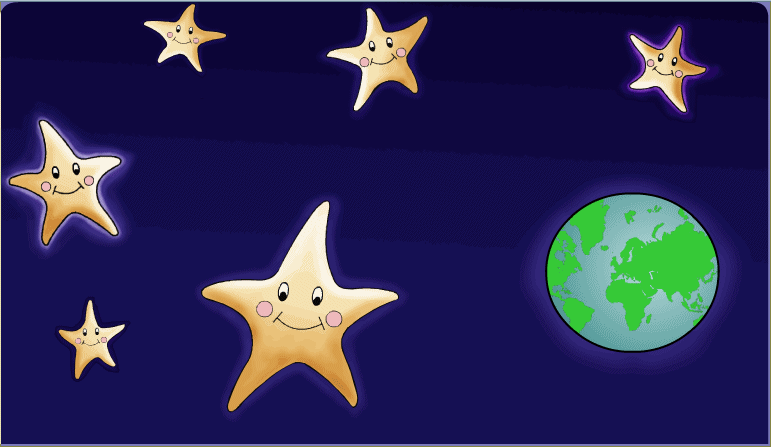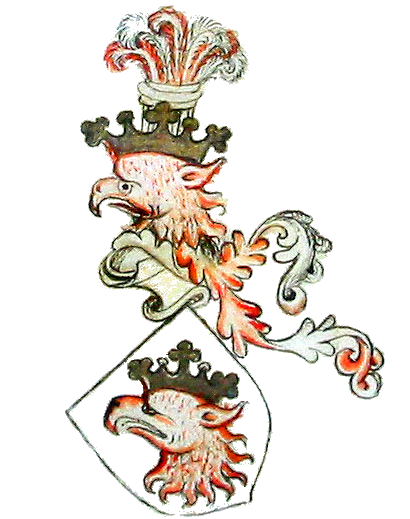|
Lillebror Och Jag
Lillebror is a children's song wit lyrics and music by Gullan Bornemark, published in '' Hallå, hallå'' in 1964. Compared to the original version, the lyrics have been changed a little bit later. The inspiration to the lyrics game from the Gullan's daughter's Eva's baby brother Sven, who thought he could do anything. Publication * Hallå, hallå, 1964 *Barnens svenska sångbok, 1999, under the lines "Sånger för småfolk". Recordings Together with Malmö snurrorkester Gullan Bornemark recorded the song at the "Gumman i lådan" single together with her children Eva and Sven. References *Barnens svenska sångbok ''Barnens svenska sångbok'' ("Children's Swedish Song book") is a 1999 Swedish song book by Anders Palm and Johan Stenström. It follows the 1997 song book ''Den svenska sångboken'' and is followed by the 2009 song book ''Evert Taube – Sång ... (1999) 1964 songs Swedish-language songs Swedish children's songs {{1960s-song-stub ... [...More Info...] [...Related Items...] OR: [Wikipedia] [Google] [Baidu] |
Song
A song is a musical composition intended to be performed by the human voice. This is often done at distinct and fixed pitches (melodies) using patterns of sound and silence. Songs contain various forms, such as those including the repetition and variation of sections. Written words created specifically for music, or for which music is specifically created, are called lyrics. If a pre-existing poem is set to composed music in classical music it is an art song. Songs that are sung on repeated pitches without distinct contours and patterns that rise and fall are called chants. Songs composed in a simple style that are learned informally "by ear" are often referred to as folk songs. Songs that are composed for professional singers who sell their recordings or live shows to the mass market are called popular songs. These songs, which have broad appeal, are often composed by professional songwriters, composers, and lyricists. Art songs are composed by trained classical compose ... [...More Info...] [...Related Items...] OR: [Wikipedia] [Google] [Baidu] |
Gullan Bornemark
Elin Gunhild "Gullan" Bornemark, born ''Bohlin'' 28 November 1927 in Härnösand, Sweden Sweden, formally the Kingdom of Sweden,The United Nations Group of Experts on Geographical Names states that the country's formal name is the Kingdom of SwedenUNGEGN World Geographical Names, Sweden./ref> is a Nordic country located on ..., is a Swedish musician, lyricist, composer and, between 1951 and 2007, music teacher. She wrote song lyrics, usually using already famous tunes, for Anita och Televinken with the ambition of teaching children how to behave in traffic. Famous songs * *" Lillebror" (1964) * * * * (also known as ) References 1927 births Living people Swedish composers Swedish male composers Swedish songwriters People from Härnösand Children's songwriters {{songwriter-stub ... [...More Info...] [...Related Items...] OR: [Wikipedia] [Google] [Baidu] |
Children's Song
A children's song may be a nursery rhyme set to music, a song that children invent and share among themselves or a modern creation intended for entertainment, use in the home or education. Although children's songs have been recorded and studied in some cultures more than others, they appear to be universal in human society. Categories Iona and Peter Opie, pioneers of the academic study of children's culture, divided children's songs into two classes: those taught to children by adults, which when part of a traditional culture they saw as nursery rhymes, and those that children taught to each other, which formed part of the independent culture of childhood. A further use of the term ''children's song'' is for songs written for the entertainment or education of children, usually in the modern era. In practice none of these categories is entirely discrete, since, for example, children often reuse and adapt nursery rhymes, and many songs now considered as traditional were deliberatel ... [...More Info...] [...Related Items...] OR: [Wikipedia] [Google] [Baidu] |
Barnens Svenska Sångbok
''Barnens svenska sångbok'' ("Children's Swedish Song book") is a 1999 Swedish song book by Anders Palm and Johan Stenström. It follows the 1997 song book ''Den svenska sångboken'' and is followed by the 2009 song book ''Evert Taube – Sångboken''. The books include songs for children from the 17th and 18th Centuries as well as more contemporary works and the songs are meant to be sung at home, at kindergarten and/or at school. Contents Sånger för småfolk ("Songs For Children (little people)") *1.'' Det gåtfulla folket'' ("The Puzzling People") *2.''Mors lilla Olle'' ("Mother's Little Olle") *3.''Tula hem och tula vall'' *4.'' Vart ska du gå, min lilla flicka?'' ("Where are you going, my little girl?") *5.''Tummeliten'' *6.'' Sockerbagaren'' ("The Pastry chef") *7.'' Blinka lilla stjärna'' *8.''Lilla Ludde'' *9.''Vem kan segla förutan vind?'' ("Who Can Sail Without Wind?") *10.''Lunka på'' ("Plod on") *11.''Tycker du om mig'' ("Do You Like Me") *12.''Alfabetsvisan'' ... [...More Info...] [...Related Items...] OR: [Wikipedia] [Google] [Baidu] |
Malmö Snurrorkester
Malmö (, ; da, Malmø ) is the largest city in the Swedish county (län) of Scania (Skåne). It is the third-largest city in Sweden, after Stockholm and Gothenburg, and the sixth-largest city in the Nordic region, with a municipal population of 350,647 in 2021. The Malmö Metropolitan Region is home to over 700,000 people, and the Øresund Region, which includes Malmö and Copenhagen, is home to 4 million people. Malmö was one of the earliest and most industrialised towns in Scandinavia, but it struggled to adapt to post-industrialism. Since the 2000 completion of the Öresund Bridge, Malmö has undergone a major transformation, producing new architectural developments, supporting new biotech and IT companies, and attracting students through Malmö University and other higher education facilities. Over time, Malmö's demographics have changed and by the turn of the 2020s almost half the municipal population had a foreign background. The city contains many historic ... [...More Info...] [...Related Items...] OR: [Wikipedia] [Google] [Baidu] |
Eva Bornemark
Eva or EVA may refer to: * Eva (name), a feminine given name Arts, entertainment, and media Fictional characters * Eva (Dynamite Entertainment), a comic book character by Dynamite Entertainment * Eva (''Devil May Cry''), Dante's mother in the ''Devil May Cry'' video game series * Eva (''Metal Gear''), a fictional character in the ''Metal Gear'' video games series * Evangelion (mecha), commonly referred to as "Eva" or "EVA", a fictional cyborg in the ''Neon Genesis Evangelion'' franchise Films * ''Eva'' (1948 film), a Swedish film * ''Eva'' (1953 film), a Greek drama film * ''Eva'' (1958 film), an Austrian film * ''Eva'' (1962 film), a French-Italian film in English * ''Eva'' (2010 film), an English-language Romanian film * ''Eva'' (2011 film), a Spanish film * ''Eva'' (2018 film), a French film Music Artists *Eva (singer), French singer * E.V.A. (band) (Eve Versus Adam), an Italian female pop band * Banda Eva, a Brazilian axé band formerly fronted by Ivete Sangalo ... [...More Info...] [...Related Items...] OR: [Wikipedia] [Google] [Baidu] |
Sven Bornemark
Sven (in Danish and Norwegian, also Svend and also in Norwegian most commonly Svein) is a Scandinavian first name which is also used in the Low Countries and German-speaking countries. The name itself is Old Norse for "young man" or "young warrior". The original spelling in Old Norse was ''sveinn''. Over the centuries, many northern European rulers have carried the name including Sweyn I of Denmark (Sven Gabelbart). An old legend relates the pagan king Blot-Sven ordered the execution of the Anglo-Saxon monk Saint Eskil. In medieval Swedish, "sven" (or "sven av vapen" (sven of arms)) is a term for squire. The female equivalent, Svenja, though seemingly Dutch and Scandinavian, is not common anywhere outside of German-speaking countries. Sven can also be spelled with W, Swen, but is pronounced as Sven. The Icelandic version of Sven/Svend is Sveinn (); the Faroese version is Sveinur (). Entertainment and music * Sven Einar Englund, Finnish composer * Sven Epiney, Swiss televisio ... [...More Info...] [...Related Items...] OR: [Wikipedia] [Google] [Baidu] |
1964 Songs
Events January * January 1 – The Federation of Rhodesia and Nyasaland is dissolved. * January 5 - In the first meeting between leaders of the Roman Catholic and Orthodox churches since the fifteenth century, Pope Paul VI and Patriarch Athenagoras I of Constantinople meet in Jerusalem. * January 6 – A British firm, the Leyland Motor Corp., announces the sale of 450 buses to the Cuban government, challenging the United States blockade of Cuba. * January 9 – ''Martyrs' Day'': Armed clashes between United States troops and Panamanian civilians in the Panama Canal Zone precipitate a major international crisis, resulting in the deaths of 21 Panamanians and 4 U.S. soldiers. * January 11 – United States Surgeon General Luther Terry reports that smoking may be hazardous to one's health (the first such statement from the U.S. government). * January 12 ** Zanzibar Revolution: The predominantly Arab government of Zanzibar is overthrown by African nationalist rebels; a Uni ... [...More Info...] [...Related Items...] OR: [Wikipedia] [Google] [Baidu] |
Swedish-language Songs
Swedish ( ) is a North Germanic language spoken predominantly in Sweden and in parts of Finland. It has at least 10 million native speakers, the fourth most spoken Germanic language and the first among any other of its type in the Nordic countries overall. Swedish, like the other Nordic languages, is a descendant of Old Norse, the common language of the Germanic peoples living in Scandinavia during the Viking Era. It is largely mutually intelligible with Norwegian and Danish, although the degree of mutual intelligibility is largely dependent on the dialect and accent of the speaker. Written Norwegian and Danish are usually more easily understood by Swedish speakers than the spoken languages, due to the differences in tone, accent, and intonation. Standard Swedish, spoken by most Swedes, is the national language that evolved from the Central Swedish dialects in the 19th century and was well established by the beginning of the 20th century. While distinct regional varieties a ... [...More Info...] [...Related Items...] OR: [Wikipedia] [Google] [Baidu] |



